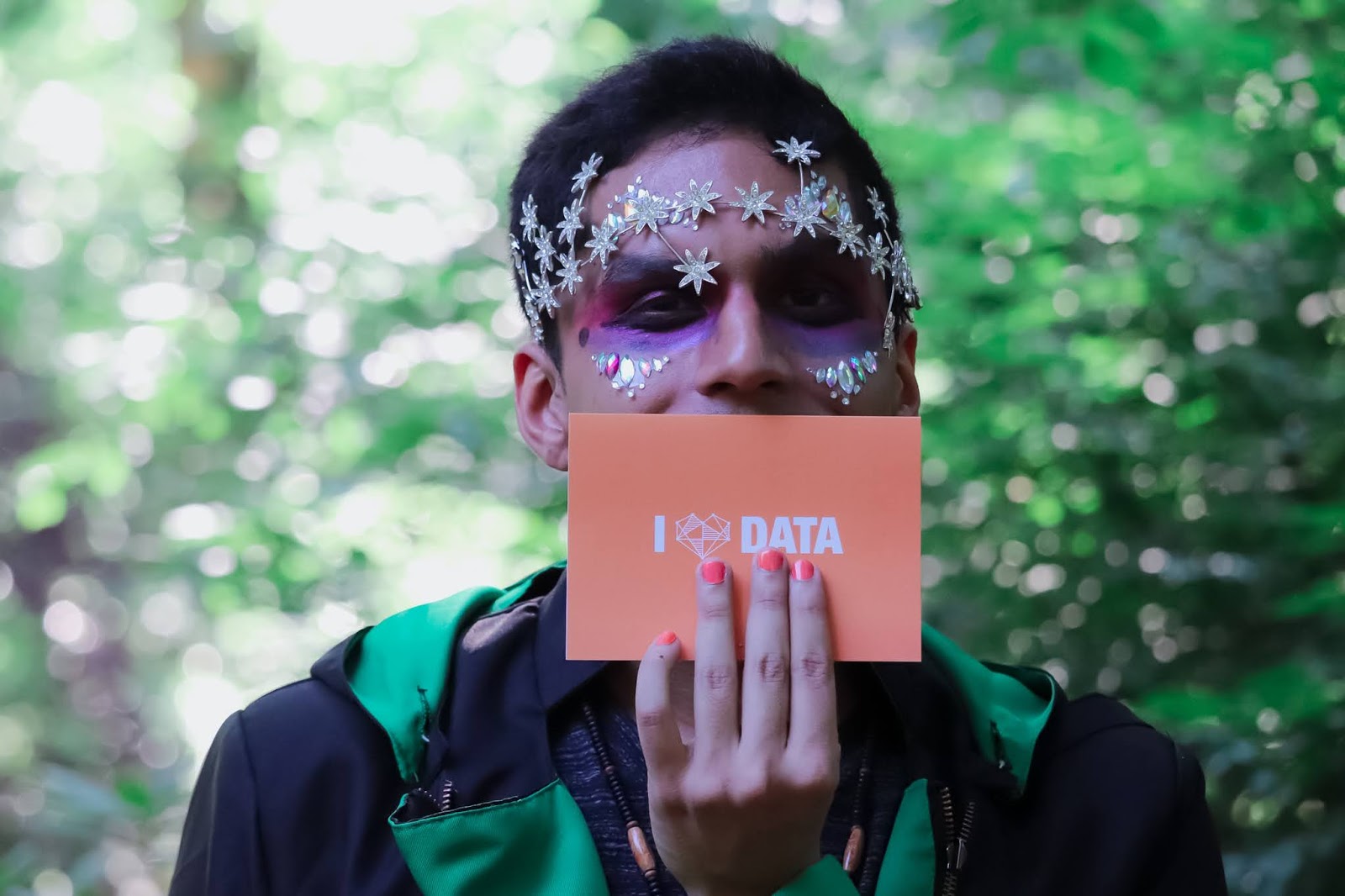Say hello to Manojit Nandi! As a Data Expert, he recently worked on a project with Medic, our longstanding partner under our Frontline Health Systems Impact Practice, to improve predictive models for better maternal and child health outcomes. By day, Manojit’s a Data Scientist at Microsoft Research who has a strong interest in algorithmic fairness and ethical AI. Outside of work, he performs in the greater NYC area as a dancer and circus acrobat. So cool, right? Learn more about him and his DataKind journey below!

Tell us a little bit about yourself and your background.
I studied machine learning theory and quantitative social sciences at Carnegie Mellon University, and got my start in data science through the Data Science for Social Good fellowship. Several years ago, I became interested in algorithmic fairness and the societal impact of computational systems. Algorithmic fairness is inherently a sociotechnical concept, so I feel working in this space allows me to combine my social scientist and computer scientist skill sets.
Can you briefly describe the project that you worked on?
My team and I worked with Medic, a nonprofit that makes open source tools and software for frontline health workers. We worked on three different predictive models, and my specific focus was in identifying a missed or late diagnosis in young children under the age of five. We used routinely collected data by frontline health workers to build a model to predict the likelihood a child may have an undiagnosed illness.
What were the most challenging moments from your project (and how you resolved them)?
There were a lot of different datasets, de-identified, of course, pertaining to household information, past assessments, patient history, and other important details. Joining these datasets together to create a dataset suitable for training machine learning models required much exploratory data analysis. After we decided on which features to use in the final dataset, we designed a feature engineering pipeline to ingest and merge the relevant input data to produce our final dataset.
What tips do you have about communicating data science findings to nonprofits most effectively?
Explainability of machine learning results is important when communicating results. While high model performance metrics sound nice, our partner will be hesitant to trust the results of the model if they can’t understand how the model is making its predictions.
Tell us about how this experience has influenced your career trajectory.
After this experience, I want to get more involved with the software engineering side of machine learning development. With DataKind’s Frontline Health Systems Impact Practice, we want to find scalable and reproducible solutions that NGOs in this sector can benefit from, and designing scalable and reproducible codebases and analytical workflows will be a key component towards this goal.
Who inspires you?
John Urschel. He’s a former professional football player for the Baltimore Ravens and currently pursuing his PhD in mathematics at MIT. I love how he was able to follow both his passions of football and mathematics.
What’s the last book you read?
I recently finished The Girl from Berlin by Ronald H. Balson. I’m currently reading Atlas of AI by Kate Crawford.
Do you have a quote, song, or a piece of poetry that really inspires you? (Points if you have it memorized.)
“You could rattle the stars. You could do anything, if only you dared. And deep down, you know it, too. ” – Sarah J. Maas, Throne of Glass
What’s one piece of advice you’d give to your younger self?
After I graduated college, I was afraid my interest in performing arts would hinder my career, so I chose to pursue more “techy” hobbies that I didn’t enjoy to fit in with the tech community. In hindsight, I feel that my dance and circus background has helped my data science career. I busted out a handstand during a job interview (I got the offer!), and everyone remembers the data scientist who dropped into the splits during the middle of a DataKind Meetup in NYC (photo evidence below).

About Volunteer Spotlights
Our volunteers are the lifeblood of our mission. They’ve inspired people to use their skills in ways they never dreamed of. They’ve slayed misconceptions. They’ve shown organizations trying to make the world a more humane place how data science and AI can change the game. We’re honored (and thrilled) to feature their stories in DataKind’s Volunteer Spotlight series. Follow this series to learn about their impeccable skill sets, their work with our brilliant project partners, and what inspires them to give their time, resources, and energy to causes that matter.
- Interested in volunteering with DataKind? Look no further.
- Interested in sponsoring a project? Partner with us.
- Interested in supporting our work? Donate here.
- Interested in submitting a project? Go for it!



